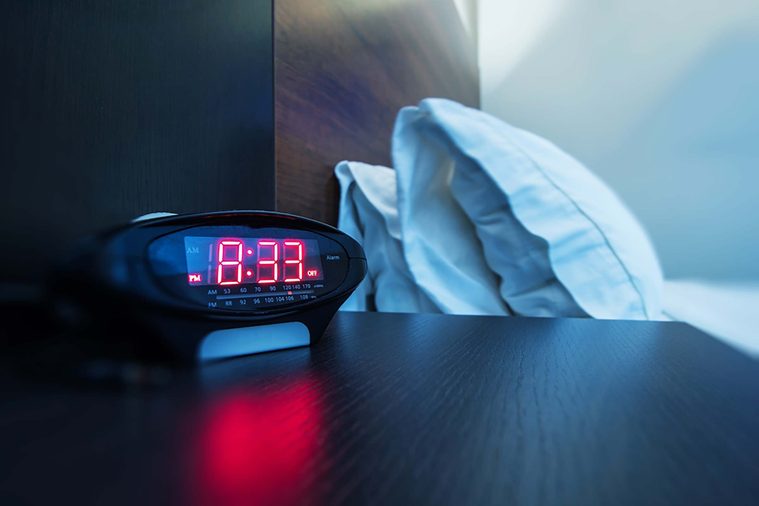
Going to bed too early
If you slept poorly the night before, you may want to slide into bed ahead of schedule. But this can actually make sleeplessness worse. People with insomnia frequently have irregular sleep-wake cycles. Sticking with a consistent sleep routine—a regular bedtime, and a regular wake time—strengthens your body’s circadian rhythms and the biological cues (like melatonin release) that help you fall asleep. Hitting the sack unusually early may garner you some “extra” sleep in the early part of the night, but you’re likely to wake up earlier than normal, throwing your sleep routine even more off-kilter. Aim to have your bedtime deviate by no more than 30 minutes from one night to the next. Here’s how to naturally reset your sleep cycle.
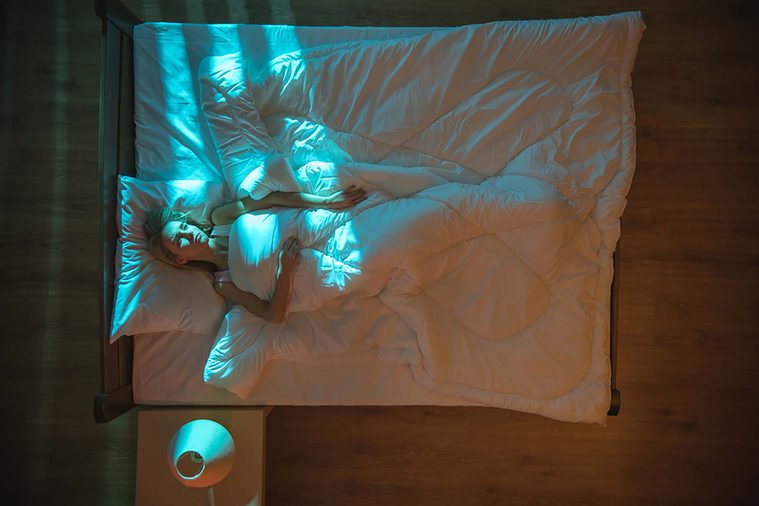
Getting in bed before you’re sleepy
I recently had a patient who was often anxious and alert at bedtime—she described the feeling as “wired and tired.” She’d crawl into bed anyway, and lie wide awake late for an hour or more, frustrated and sleepless. I recommended she delay her bedtime until she felt ready to fall asleep. A restless, wired mind is one symptom of sleep deprivation. Learn to recognize the difference between being tired and being sleepy—and hold off going to bed until you feel ready to nod off. Take some extra time with your nightly routine, or find other ways to relax away from bright lights and screens near your face. These are the 12 other healthy habits you should always do at night.

Drinking alcohol to help you nod off
Plenty of people are looking for ways to cut back on their drinking. It’s a good idea, according to the National Sleep Foundation, since they report that at least 20 percent of Americans use alcohol to help them sleep at night. The relationship between alcohol and sleep is complicated. One drink in the evening may help you fall asleep, but drinking more heavily can be stimulating, not sedating. Even if a nightcap does help you doze off initially, alcohol in your system at night disrupts your rest in other ways, causing lighter, more restless sleep, exacerbating snoring, and making you more likely to have to get up to use the bathroom. If you’re already having trouble sleeping, skip the before-bed glass of wine.
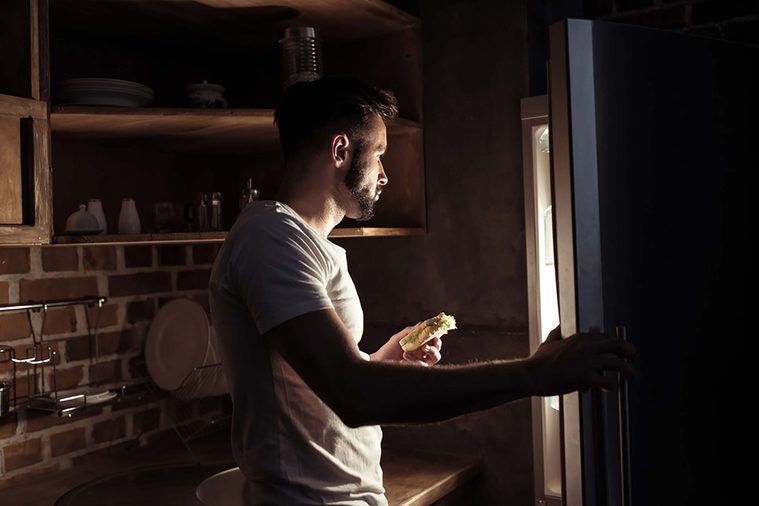
Eating right before bed
People with insomnia may be more prone to late-night snacking. Up later, they’re more likely to get hungry again after dinner. And the presence of stress—whether about daily life or sleep itself—does more than interfere with slumber. It also boosts inclination for late-night eating, which can disrupt sleep. The evidence is growing about the hazards of late-night eating, and new research suggests that weight gain and rising insulin and cholesterol levels are among the risks. Make your last full meal two to three hours before bedtime, and don’t do a lot of snacking right before bed—or in bed. A light, sleep-friendly snack 90 minutes or an hour before turning in is OK, but eating right before sleep can keep you awake, especially if you have insomnia. This is how to stop late-night snacking.
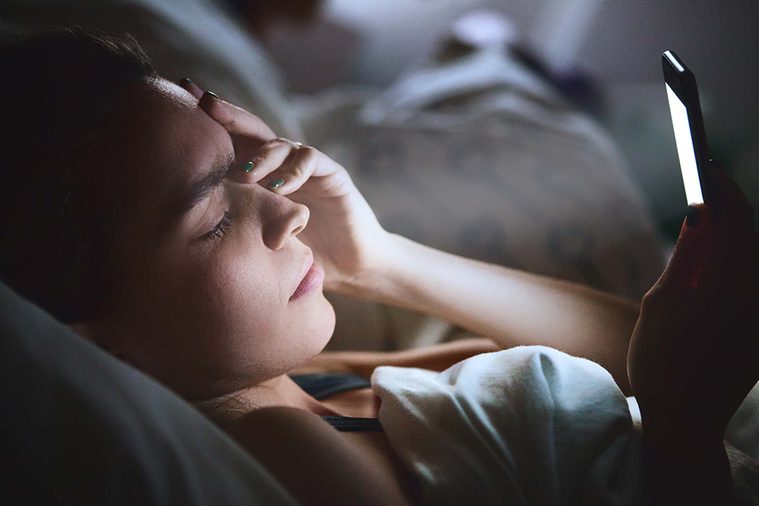
Logging onto social media from bed
Do you do a final check of social media right before lights out? This is a behavior that often gets pegged to 20- and 30-somethings, but I have patients in their 40s, 50s, and 60s who share this sleep-disrupting habit. Holding your phone close to your face exposes you to bright, blue-wavelength light, which is especially disruptive to sleep. A new study by scientists at the University of Pittsburgh indicates using social media within 30 minutes of bedtime increases disturbances to sleep. Scrolling through Facebook and liking your friends’ Instagram stories will stimulate your mind and keep you alert, just when you need to wind down. Establish a social media cut-off time of at least 60 minutes before bed.
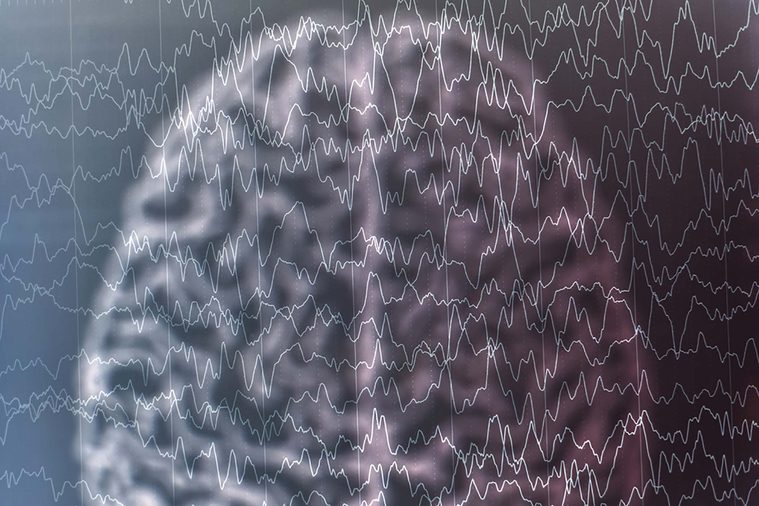
Thinking negatively about sleep
What causes insomnia? Chronic difficulty sleeping can stem from many factors, including health conditions, medications, poor sleep habits, and stress. Anxiety about sleep itself often compounds the problem. Negative, distorted thoughts about sleep can trigger the body’s stress response, including raising blood pressure, heart rate, and brain activity. This makes it harder to nod off, which further increases anxiety about your inability to sleep. To break this anxious, sleep-depriving cycle, replace negative sleep thoughts with positive ones—a technique known as “cognitive restructuring.” For example: “I’ll never be able to fall asleep” becomes “As I allow myself to relax, sleep will happen.” Use mindfulness practices and relaxation breathing to help you re-focus your thoughts. Here are 10 sleeping tips from former insomniacs.
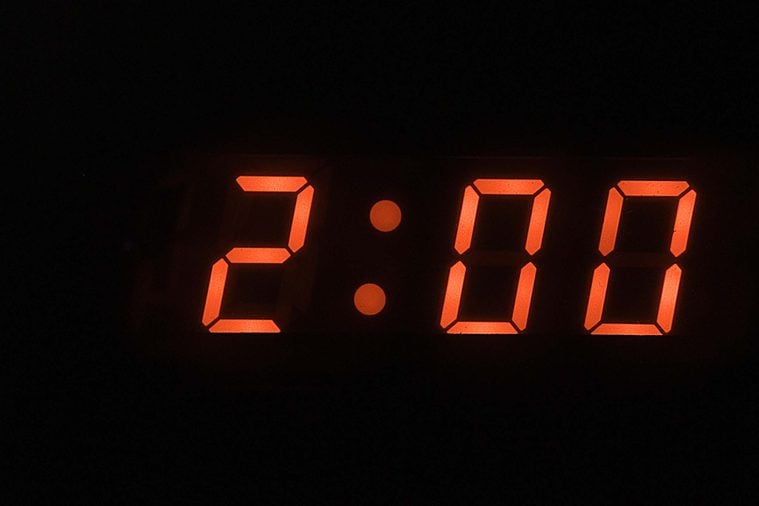
Staring at the clock
Sometimes my patients struggling to find a cure for their insomnia go in search of complicated solutions. Clock-watching is a common pitfall for people who struggle with sleep—and the remedy couldn’t be simpler, or more effective. If you’re having trouble falling asleep, stash your bedside clock. Constantly checking the time ratchets up sleep-related stress, and makes it almost impossible to drift off. “The later it gets, the more afraid I feel about the sleep I’m missing, and how tired I’ll be the next day,” a patient told me recently. Place the clock firmly out of your view, so you’re not tempted to check the time again and again.
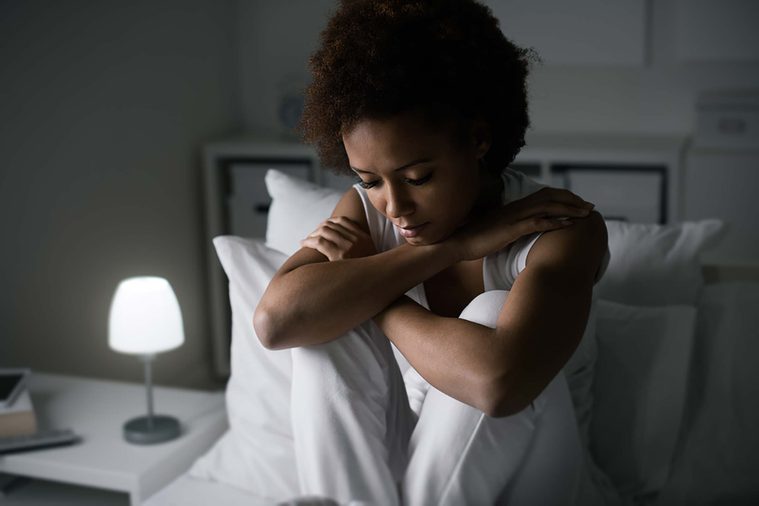
Trying to get more sleep than you need
The standard recommendation of eight hours of nightly rest is a good one, but it isn’t for everybody, all the time. Individual sleep needs vary. Some people who regularly experience insomnia aren’t built to achieve—or even need—a full eight hours of sleep. For some people struggling with sleeplessness, six or six-and-a-half hours might be a more realistic goal. By focusing too narrowly on hitting the eight-hour mark, you may inadvertently create stress that makes sleep harder to come by. Instead, put your attention on the quality of your rest. Practice good sleep hygiene, create a restful sleep environment, give yourself some relaxing nighttime rituals, and pat yourself on the back for making high-quality sleep a priority. Next, check out these 11 harmless habits that are actually causing your insomnia.